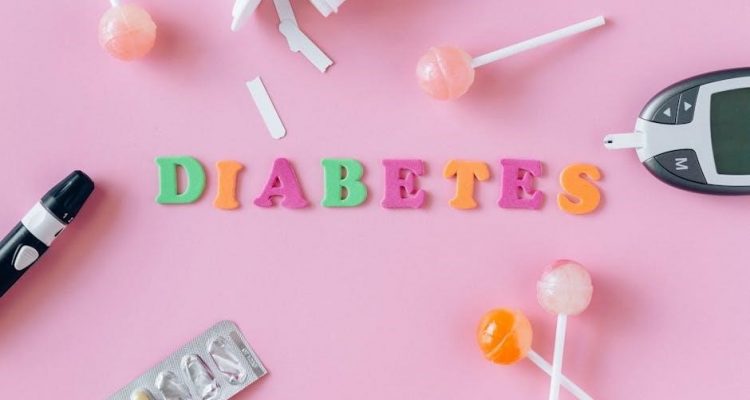The Leptin Diet Plan is a structured eating approach designed to regulate leptin, helping control hunger and metabolism. It emphasizes balanced macronutrients, whole foods, and healthy eating habits.

What is Leptin?
Leptin is a hormone produced by fat cells that signals the brain about energy storage, regulating hunger, metabolism, and body weight effectively.
Understanding Leptin’s Role in Weight Regulation
Leptin is a hormone produced by fat cells that plays a crucial role in energy balance and weight management. It signals the brain about fat storage, suppressing hunger and increasing metabolism when levels are high. Low leptin levels trigger hunger and reduce energy expenditure, while high levels in obesity can lead to leptin resistance, disrupting weight regulation. Balancing leptin is essential for maintaining a healthy weight and metabolic function.

What is the Leptin Diet?
The Leptin Diet is a structured eating plan focusing on balanced macronutrients, whole foods, and avoiding leptin-resistant promoters like high-carb and sugary foods to manage leptin levels effectively.
Overview of the Leptin Diet Plan
The Leptin Diet Plan is a structured program designed to manage leptin levels, focusing on balanced macronutrients and eliminating high-carb, sugary, and processed foods. It emphasizes whole foods, lean proteins, and healthy fats to promote satiety and metabolism. The plan includes meal ideas, portion control, and lifestyle adjustments to support weight loss and overall health, with a focus on sustainable eating habits and leptin regulation for long-term benefits.
Key Principles of the Leptin Diet

The Leptin Diet focuses on eliminating high-carb, sugary, and processed foods to prevent leptin resistance. It emphasizes lean proteins, healthy fats, and fiber-rich vegetables to stabilize blood sugar and promote satiety. The plan encourages eating three balanced meals daily, avoiding snacking, and stopping eating after dinner. By aligning with leptin’s natural function, it supports weight loss and metabolic health while reducing cravings and improving energy levels over time.
Benefits of the Leptin Diet Plan
The Leptin Diet Plan helps regulate hunger, boosts metabolism, and supports sustainable weight loss by balancing macronutrients and reducing leptin resistance.
How the Leptin Diet Promotes Weight Loss
The Leptin Diet promotes weight loss by regulating leptin levels, which helps control hunger and metabolism. It focuses on protein-rich meals, healthy fats, and fiber to keep hunger in check. By avoiding high-carb and sugary foods, the diet reduces leptin resistance, allowing the body to burn fat more efficiently. Balanced macronutrients and portion control further support sustainable weight loss without extreme calorie restriction.

Improving Metabolic Health Through Leptin Regulation
Leptin regulation enhances metabolic health by optimizing energy balance and insulin sensitivity. The Leptin Diet focuses on reducing leptin resistance, which improves how the body processes glucose and insulin. By emphasizing protein, healthy fats, and fiber, the diet supports stable energy levels and reduces inflammation. This approach not only aids in weight loss but also promotes long-term metabolic health, preventing conditions like type 2 diabetes and cardiovascular disease.

How the Leptin Diet Works
The Leptin Diet works by balancing macronutrients and avoiding high-carb, sugary foods to prevent leptin resistance, promoting structured mealtimes and whole food intake to regulate leptin levels.
The Science Behind Leptin and Weight Management
Leptin, a hormone produced by fat cells, signals the brain to regulate energy balance and appetite. High leptin levels suppress hunger, while low levels increase it. Leptin resistance, often caused by diets high in sugar and unhealthy fats, disrupts this process, leading to overeating and weight gain. The Leptin Diet aims to restore sensitivity by focusing on balanced macronutrients and eliminating foods that impair leptin function, supporting natural weight management.
Impact of Diet on Leptin Levels
Diet plays a crucial role in leptin levels. Diets high in sugar, refined carbs, and unhealthy fats can lead to leptin resistance, reducing its effectiveness. Conversely, consuming whole, nutrient-dense foods like lean proteins, healthy fats, and fiber-rich vegetables supports leptin sensitivity. The Leptin Diet emphasizes avoiding high-carb and high-sugar foods, promoting balanced meals to maintain optimal leptin function and metabolic health. Timing meals and avoiding late-night eating also helps regulate leptin levels effectively.
Leptin Diet Meal Plan Overview
The Leptin Diet Meal Plan focuses on balanced macronutrients, whole foods, and structured meals. It typically includes 40% fat, 30% protein, and 30% carbs, with meals timed to optimize leptin function and weight management.
Sample Meal Ideas for the Leptin Diet
Breakfast: Scrambled eggs with spinach and avocado. Lunch: Grilled chicken salad with mixed greens, olive oil, and vinegar. Dinner: Baked salmon with roasted vegetables. Snacks: Nuts or Greek yogurt with berries. Desserts: Dark chocolate or fruit-based treats. Meals emphasize protein, healthy fats, and fiber, avoiding high-carb and sugary foods to support leptin balance and weight management. Portion control and timing are key to optimizing metabolic function.
Structuring Your Daily Meals
The Leptin Diet structures meals around balanced macronutrient intake, emphasizing whole, nutrient-dense foods. It recommends three main meals daily without snacking, ensuring the last meal is eaten several hours before bedtime. This approach supports leptin function, promoting satiety and metabolism. Meals are designed to avoid spikes in blood sugar and insulin, focusing on protein, healthy fats, and low-carb vegetables to maintain energy balance and reduce cravings.

Rules of the Leptin Diet
The Leptin Diet rules include eliminating high-carb foods, avoiding late-night meals, and structuring meals without snacking, focusing on balanced macronutrients with protein and healthy fats.
Five Essential Rules to Follow
The Leptin Diet outlines five key rules: eat three meals daily without snacking, avoid eating after dinner, include 20-30 grams of protein at breakfast, balance macronutrients, and eliminate high-carb, sugary foods. These rules help stabilize leptin levels, reduce resistance, and promote sustainable weight loss by regulating hunger and metabolism effectively.
Avoiding Foods That Promote Leptin Resistance
Avoiding Foods That Promote Leptin Resistance
The Leptin Diet advises eliminating high-carb, sugary, and processed foods that disrupt leptin balance. Avoid refined grains, sugary snacks, and high-fructose foods, as they can lead to insulin spikes and inflammation, promoting leptin resistance. Instead, focus on whole, nutrient-dense foods to support leptin function and maintain a healthy metabolic state.
Phases of the Leptin Diet
The Leptin Diet is structured in phases, starting with initial weight loss and transitioning to metabolic balance and maintenance, ensuring a gradual and sustainable approach to health.
Understanding the Different Phases
The Leptin Diet Plan is divided into distinct phases, each tailored to support weight loss and metabolic balance. The initial phase focuses on kickstarting leptin sensitivity, often involving a calorie-restricted meal plan with balanced macronutrients. Subsequent phases gradually introduce more flexibility, emphasizing whole foods and portion control. The final phase concentrates on maintenance, ensuring long-term weight management and optimal leptin function. Each phase is designed to transition smoothly, promoting sustainable results.
Transitioning Through Diet Phases
Transitioning through the Leptin Diet phases involves gradual adjustments to maintain metabolic balance and leptin sensitivity. Each phase is designed to build on the previous one, ensuring a smooth shift from weight loss to long-term maintenance. The process emphasizes monitoring progress, adjusting macronutrient ratios, and incorporating mindful eating habits. Guidance is provided to help individuals adapt seamlessly, avoiding plateaus and sustaining leptin function for lasting results.

Role of Macronutrients
The Leptin Diet Plan emphasizes a balanced intake of fats, proteins, and carbohydrates to support leptin function and metabolic health, promoting sustainable weight management and energy balance.
Balancing Carbohydrates, Proteins, and Fats
The Leptin Diet Plan advocates for a balanced intake of macronutrients, with 40% fat, 30% protein, and 30% carbohydrates. This ratio supports leptin function, metabolism, and appetite regulation. Emphasizing whole foods, lean proteins, and healthy fats helps maintain energy balance and prevents leptin resistance. Carbohydrates are chosen for their low glycemic impact, while fats and proteins aid in satiety and hormonal stability, promoting sustainable weight management and overall health.
Importance of Protein in Leptin Regulation
Protein plays a crucial role in leptin regulation by promoting satiety and stabilizing leptin levels. A diet rich in high-quality proteins, such as lean meats, fish, and dairy, supports leptin function, enhancing metabolism and appetite control. Adequate protein intake helps prevent leptin resistance, a key factor in weight management, ensuring the hormone effectively signals fullness and maintains energy balance for optimal health.

Managing Leptin Resistance
Managing leptin resistance involves dietary adjustments and lifestyle changes to restore leptin sensitivity, promoting better weight control and metabolic health through targeted eating strategies and habits.
Dietary Strategies to Combat Resistance
The leptin diet focuses on eliminating high-carb, sugary, and processed foods that promote resistance. It emphasizes protein-rich meals, healthy fats, and fiber to stabilize leptin levels. Avoiding late-night eating and portion control are key. The plan encourages whole, nutrient-dense foods to improve leptin sensitivity and metabolic function, helping the body regulate hunger and energy balance more effectively.
Lifestyle Adjustments for Optimal Leptin Function
Adopting a consistent sleep schedule, practicing stress management, and engaging in regular physical activity support leptin function. Avoiding late-night meals and ensuring adequate hydration also promote hormonal balance. These lifestyle changes, combined with a balanced diet, enhance leptin sensitivity, improving appetite regulation and metabolic health. Prioritizing whole foods and maintaining a healthy weight further optimizes leptin function for sustainable well-being.

Lifestyle Changes
Implementing daily habits like adequate hydration, regular movement, and consistent meal timing supports leptin function. These adjustments promote a balanced lifestyle, enhancing overall leptin regulation and well-being.
Exercise and Sleep for Leptin Health
Regular physical activity, such as aerobic exercises and strength training, helps stabilize leptin levels and prevent resistance. Adequate sleep is equally important, as sleep deprivation can disrupt leptin function, leading to increased hunger and metabolic slowdown. Aim for 7-9 hours of quality sleep and incorporate consistent exercise to support leptin balance and overall health. These habits complement the dietary aspects of the leptin plan, promoting a balanced lifestyle.
Stress Management Techniques
Chronic stress disrupts leptin levels by increasing cortisol, which can lead to leptin resistance. Techniques like meditation, yoga, and deep breathing help reduce stress and stabilize leptin function. Incorporating mindfulness practices and time management can also lower cortisol levels, supporting leptin health. These strategies, combined with a balanced diet, promote hormonal equilibrium and enhance the effectiveness of the leptin diet plan for sustainable weight management and overall well-being.
The leptin diet plan offers a sustainable approach to weight management by regulating leptin levels. It is ideal for those seeking to balance hormones, improve metabolism, and achieve long-term health benefits with structured meal plans and lifestyle adjustments;
Evaluating the Effectiveness of the Leptin Diet
The leptin diet has shown promise in weight management by focusing on balanced macronutrients and whole foods. Studies suggest it improves leptin sensitivity, enhancing metabolism and fat burning. By avoiding high-carb and sugary foods, the diet helps reduce leptin resistance, promoting sustainable weight loss. Its structured approach, emphasizing protein and healthy fats, aligns with research supporting its effectiveness for long-term metabolic health and appetite control.
Is the Leptin Diet Right for You?
The leptin diet is ideal for those seeking sustainable weight loss and improved metabolic health. It’s particularly beneficial for individuals with leptin resistance, as it focuses on balancing macronutrients and avoiding high-carb, sugary foods. If you struggle with hunger or metabolic issues, this diet may help regulate your appetite and energy levels. However, it’s important to consult a healthcare professional to determine if it aligns with your personal health goals and needs.
